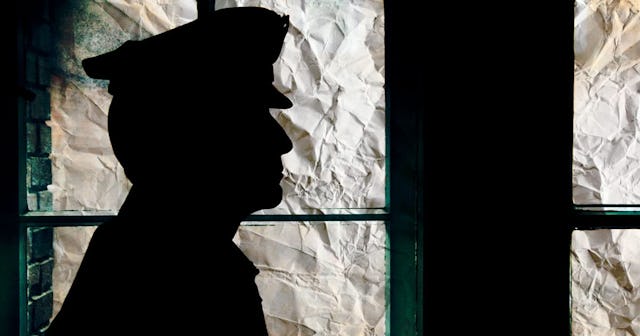There’s More Than A Few ‘Bad Apples’ — And USA Today Made Their Records Public

I watched Jennifer Lopez’s most recent cop show, Shades of Blue — based in New York City — until it was canceled in 2019. It only lasted two seasons, but I was hooked — the intense action, and the actors, which included Ray Liotta, held my attention until the very last minute.
What the show did well was uncover how easy it is for some police officers to do the wrong thing. And then, there is the reality that police are protected by their supervisors — often wrongdoings come from the top down. At least, that is the story this particular cop show depicts. More often than not, after I finished an episode, I felt curious about what the truth was — what is really going on in the world of law enforcement?
Recently, an investigative team from USA TODAY, its affiliated newsrooms, and the Chicago-based nonprofit Invisible Institute found that “[a]t least 85,000 law enforcement officers across the USA have been investigated or disciplined for misconduct” in the last decade. 30,000 of those have been banned from the profession entirely; the most frequent cause were drugs and alcohol (4,537 banned officers in 44 states), followed closely by assault and violence (3,254). The team made the records public, creating a searchable state-by-state database — an unprecedented look at records that in many cases are swept under the rug.
Truth be told, I cannot imagine being a cop. So many have been lured into unsavory situations, questioning the difference between right or wrong, choosing to do wrong time and time again. This is what’s happened across the United States in the cases of this handful of police officers, the men and women clothed in blue and charged with protecting the very communities they often do not.
Many are policing areas which take them out of their comfort zone, and into communities in which they may feel unsafe. But does this matter when their sole job is to keep men, women and children safe and away from harm? What happens when they are the criminals — who then protects these communities? In the case of these 85,000 men and women, they are choosing to do the wrong thing, and that is terrifying and infuriating.
living_images/Getty
We need our police to abide by the oath they took when they graduated from the academy, but it’s as if some are living out some unfulfilled childhood fantasy game of “good cop, bad cop” — and we are the citizens paying our taxes, which in turn pay their salaries and provide for their families.
The “bad cops” are taking away more than they are giving to communities. With misconducts ranging from theft and driving while drunk, to domestic violence and selling drugs, their crimes against humanity are vast. Why does it matter now? Why at this turning point in our era post George Floyd’s death?
I think it matters to us now, more than ever, to recognize that power corrupts humanity. When a murder can be recorded, live, and broadcast live on social media, and the officer is not arrested, it confirms that not only do we have a long way to go as a society, but also that this is not an issue about black and white or criminal versus lawful citizens.
What we have before us is clear: breaking the law is breaking the law, no matter one’s skin color or professional title. These wounds to our society, the ones we try to heal after such crimes are made by officers, will hurt deeply. But what we cannot do is brand the over 650,000 police officers who choose to do the right thing, day in and day out, as part of this group of rogue men and women of the blue. We cannot throw the 650,000+ officers into one gross generalization that all police officers are bad.
But, conversely, we cannot say (or imply) that all black men are bad. Or all men of color who wear beards and have darker skin are terrorists.
This is not an all-or-nothing socially, politically, and racially charged national conversation we are having. But we must take a step back and look at what is at stake if we do not remove those ‘bad apples’. A culture of crime, and turning the other cheek when offenses are made, perpetuates the very societal issues the police are in place to protect against. To work towards a police force people can feel confident and safe to call when they are in need. It is about firing the 85,000 officers who, in the last 10 years, were investigated for misconduct and not allowing them back into the field again (under any circumstances).
What is happening now is the uncovering of facts, the modification of practices that did not work and served no one and no purpose. It is weeding out the rotten apples. It’s not easy to look in the mirror and recognize all of one institution’s wrongdoings. However, it is the only way we can attempt to right the wrongs, and we must do it. Now.
This article was originally published on